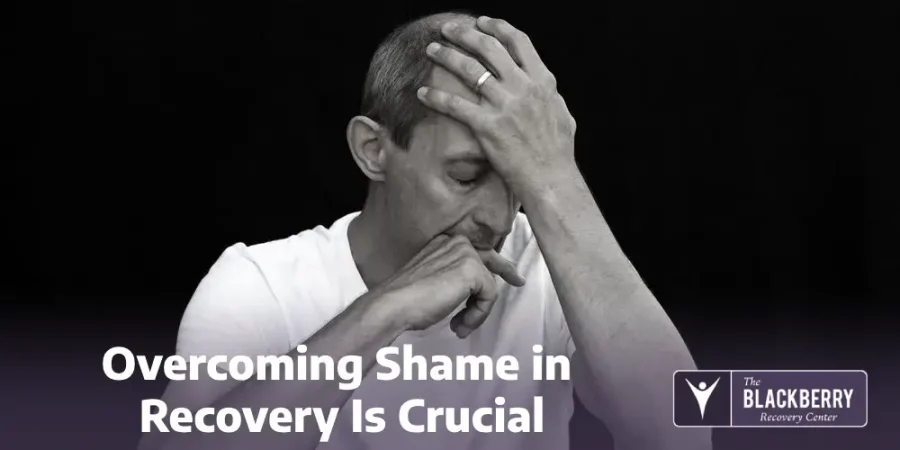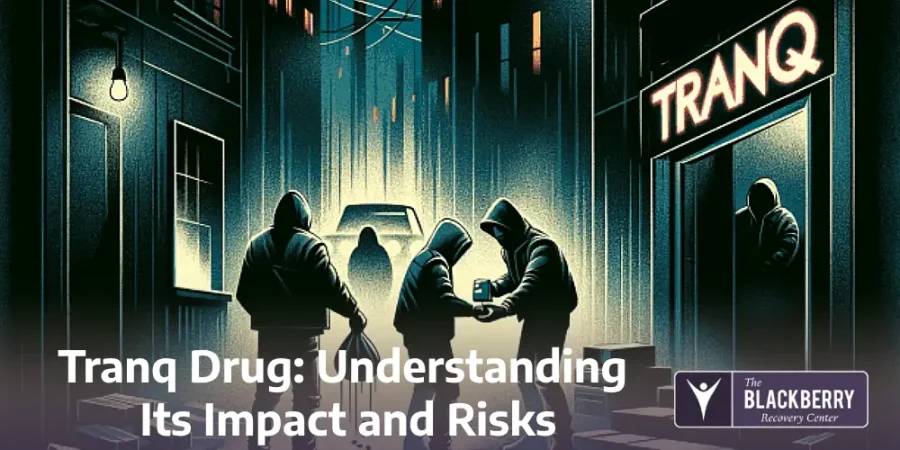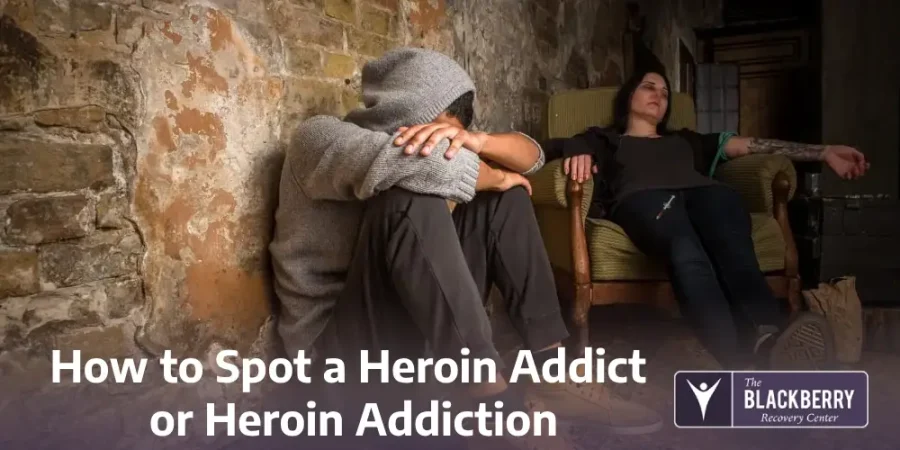Feelings of guilt and shame are common in those struggling with addiction. But those feelings may actually sabotage your recovery process. Overcoming shame in recovery – and after recovery – is crucial to defeating a drug addiction and/or alcohol addiction and maintaining lifelong sobriety.
Exploring shame and addiction
Guilt and shame will challenge your recovery. You may feel damaged by your addiction and undeserving of happiness and sobriety. The first step is to ask for help in dealing with such feelings. Research has shown that those abusing drugs and/or alcohol recognize that “recovery is within their reach” when they receive treatment.
Several studies have shown the detrimental effects of shame on relapse as well. A 2013 study suggested that shame can increase the possibility of relapse and other health problems related to addiction. Researchers noted that “how much shame participants displayed strongly predicted not only whether they relapsed, but how bad that relapse was.”

Exploring shame and addiction
In order to dive deeper on how shame can lead to damage through multiple stages of recovery, we have to look closer at the difference between guilt and shame.
Knowing the difference between guilt and shame
Overcoming shame in recovery begins with understanding the difference between guilt and shame.
When you feel guilty, it’s related to a behavior you engaged in. For example, if you committed a crime or lied about something important, you might feel guilt based on those actions. When you’re guilty, you likely realize what you did was wrong.
Shame, on the other hand, runs deeper. According to Brené Brown, a leading researcher on courage, vulnerability, shame and empathy at the University of Houston, shame is the most primitive emotion we feel.
When you feel shame, the focus is not on your actions. Instead, it’s on yourself. You may have thoughts such as
- I’m a bad person.
- I’m unlovable.
- I’m not important.
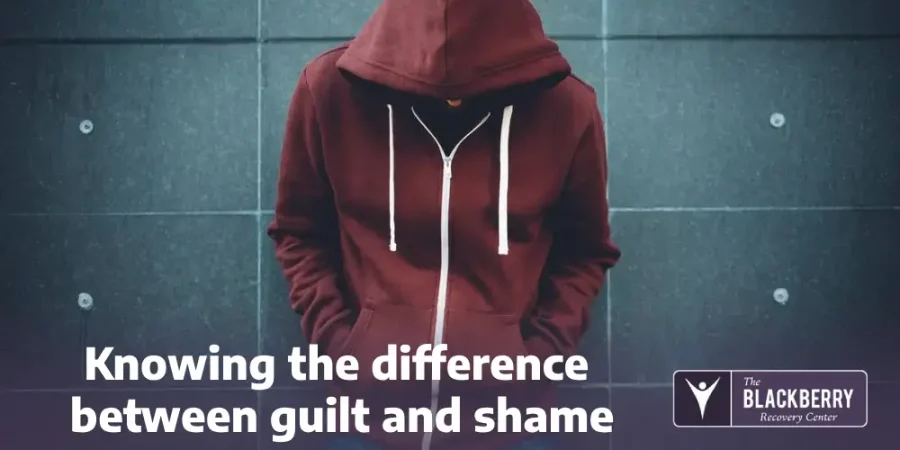
Knowing the difference between guilt and shame
Shame cuts deep. It puts the focus on negative feelings about yourself. It tells you that you’re flawed and not worthy of happiness or forgiveness.
Experiencing guilt is a healthy part of recovery. It may kickstart your journey towards sober living. It may impel you to right a wrong, take ownership of past mistakes or make amends with a loved one.
On the other hand, the presence of shame might force you deeper into the vicious cycle of addiction. It may leave you feeling unworthy of support and a second chance. It may even trigger you to actively reject help and leave you embarrassed. According to Brown, shame needs 3 things to grow:
- secrecy
- silence
- judgment
There is a strong link between shame and mental health conditions, including depression. This association can also drive you to self-medicate, furthering the cycle of addiction.
Overcoming shame in recovery
We know that shame and addiction go hand in hand. Yet knowing this means we can break the cycle of shame, get addiction treatment and start the road to recovery. When you find yourself in a shame spiral, keep these tips in mind:
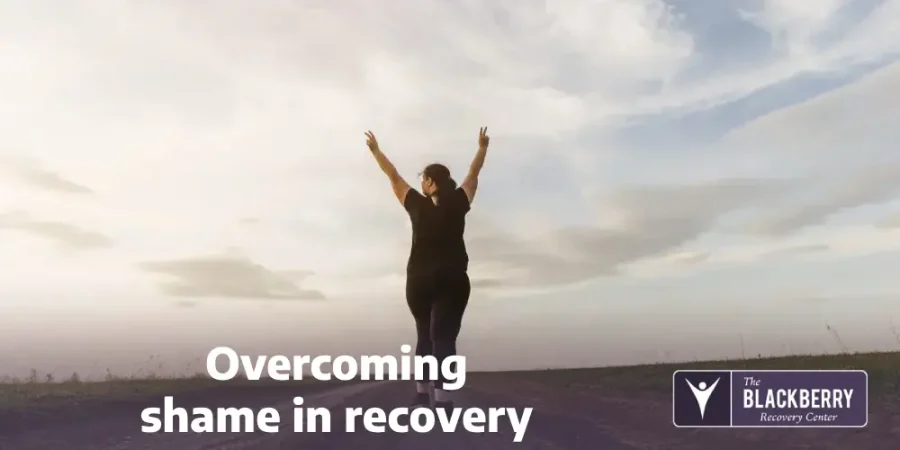
Overcoming shame in recovery
1) Recognize your shame
To break the cycle, it’s imperative to recognize your behavior as well as your negative thought patterns. Aim to take a more empowering approach. Say these words out loud: “I will do better next time.”
2) Be open about your shame
Talking through your shame – especially with someone who can show you empathy – can be extremely cathartic. It is also one of the building blocks of cognitive behavioral therapy.
According to Brown, shame depends on you believing that you’re alone. When you’re able to seek out a friend or counselor who will lend you an ear in a safe environment, you are not only maintaining healthy relationships but you’re also taking steps to overcome your shame.
3) See your value
It’s often said that we can be our worst critics. Treating yourself with compassion and learning to forgive yourself can be hard, but it also can raise your self-esteem and self-worth.
Avoid making excuses for your past. Learn to live with your mistakes and the lessons they taught you. Look for ways to mend relationships. The act of gratitude can even rewire your brain and activate the parts of it that produce dopamine.
We can help you
At The Blackberry Center, you will have the opportunity to begin the journey to lifelong recovery in our state-of-the-art facilities.
If you or one of your loved ones are struggling with addiction, we can help. We use a personalized approach to addiction recovery and treatment. Our focus is on treating the disease, not the symptoms. We put our patients first every step of the way.
Our substance abuse-only treatment programs include detox, residential and partial hospitalization program (PHP). Our on-site rehab programs focus on a comprehensive recovery approach. They address your physical, mental and spiritual needs for optimal wellness.
Your needs are unique. We treat you as such.

Reach out for help today
You may be struggling with long-term addiction. Or you may be fighting strong temptations. We can meet you where you are in your fight for sobriety.
We welcome you to our treatment center. From support groups to individual therapy treatment options, we are here to fight the battle with you.
Contact us today. You can also call us at (813) 908-4199.
Video
Eliminating the Shame and Stigma of Addiction, Kathryn Helgaas Burgum – TED Talk
Kathryn Helgaas Burgum became First Lady on December 15, 2016, when her husband Governor Doug Burgum was sworn in as the 33rd Governor of North Dakota. Kathryn has donated her time and leadership to supporting and developing initiatives for fighting addiction in North Dakota’s communities. First Lady Kathryn Helgaas Burgum has donated her time and leadership to many charitable endeavors including at-risk women and children, animal welfare, visionary artists and the arts. Now, as First Lady, her priority is supporting and developing initiatives for fighting addiction in North Dakota’s communities. This talk was given at a TEDx event using the TED conference format but independently organized by a local community.
FAQ
- Why is overcoming shame important in recovery?
Shame can prevent individuals from seeking help and fully engaging in recovery, making it crucial to address for healing and growth. - How does shame differ from guilt in recovery?
Shame involves feeling fundamentally flawed, while guilt focuses on specific actions. Recovery benefits from addressing both. - What strategies help combat shame in recovery?
Therapy, support groups, self-compassion practices, and open communication can help reduce shame. - Can shame affect relapse risk?
Yes, unresolved shame can increase vulnerability to relapse. - How can loved ones support someone overcoming shame?
Providing empathy, avoiding judgment, and encouraging professional help are key.

